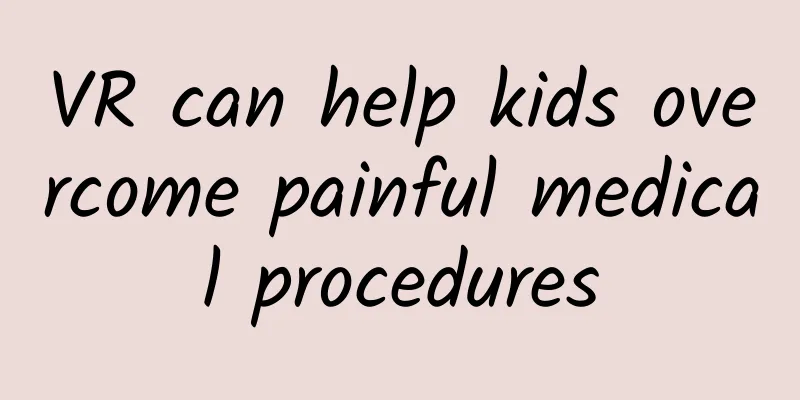VR can help kids overcome painful medical procedures

|
Children often feel anxious and fearful about having painful medical procedures, but if you tell them they have a chance to see cheeseburgers floating in space while they're being treated by a doctor, they might feel a little different. Children's different reactions are why Stanford Packard Children's Hospital is pioneering the use of virtual reality technology. As one of the first hospitals in the country to implement distraction-based VR therapy, Packard Children's Hospital immerses children in fun and immersive experiences that can significantly reduce their anxiety and even pain. This isn’t the first time Packard Children’s Hospital has used innovative methods to ease patients’ anxiety. In 2015, Sam Rodriguez and Thomas Caruso, co-founders of Packard Children’s Hospital’s Child Anxiety Reduction through Innovation and Technology (CHARIOT) program, first launched VR programs including bedside entertainment and relaxation theater. The system projects a large-screen video onto the patient’s gurney so they can watch a movie or music video while on the way to the operating room. In early 2017, the Innovative Technology to Reduce Childhood Anxiety program launched an interactive game video called Sevo the Dragon, which is projected onto a screen while a patient is receiving anesthesia, so children have something fun to do while breathing medication through a mask. The researchers are currently conducting further studies to determine how much of an impact VR has on pain and anxiety levels during certain procedures, and so far the results are promising: Children immersed in the VR world tended to be more cooperative and less fearful during treatment, and also reported less fear during procedures like having their blood drawn. VR Interventional Therapy is currently being used in certain areas of the Packard Children’s Hospital’s 6-year-old emergency department, and will be expanded to all nursing floors and outpatient clinics throughout the hospital by the end of 2017, and will even be used in the labor and delivery department. Children should not be afraid of visiting the doctor, as some experiences can cause phobias to persist into adulthood. Needle phobia is a common example, and it is one of the main reasons many adults refuse vaccinations. Now when patients wear VR glasses to receive treatment, their pain should be reduced. Source: Omelette translated from howstuffworks |
<<: ResumeGo: How LinkedIn affects job seekers' interview chances
Recommend
Moderate cervicitis
For female friends, cervicitis is a very scary di...
Counterpoint: Global sales of cheap smartphones will increase by 10% year-on-year in Q2 2024
According to the latest data from Counterpoint, g...
Did you know that bad mood can also trigger allergies?
Everyone knows that eyes are windows to the soul,...
Is female sexual indifference caused by kidney deficiency?
Many people have the idea that men's sexual d...
Which method of breast augmentation is the safest?
Breast augmentation is a topic that many women ta...
Lithium is not only in batteries, but also in medicines...
Lithium is not only in batteries, but also in med...
How painful is it for girls to have their periods?
Although female friends have menstruation every m...
Can a racket-shaped placenta be delivered naturally?
Most pregnant women who choose cesarean section d...
How to treat chocolate cyst? These methods all work!
Chocolate cyst is a disease that appears in women...
How to judge whether menstruation is clean
When menstruation comes, a woman's body will ...
What are the causes of hair loss in young women?
It turns out that hair loss is not a disease. Man...
What fruits are better to eat during menstruation?
Many female friends like to eat fruits because th...
The benefits of taking folic acid for normal women
Folic acid tablets can provide almost all the nut...
Leucorrhea after pregnancy
After pregnancy, the hormone levels in the body c...
Why is my chest always itchy?
The breasts are a relatively important part of a ...









